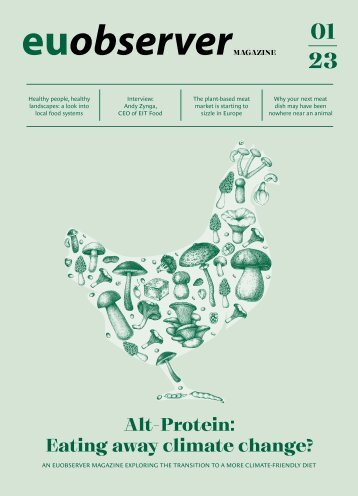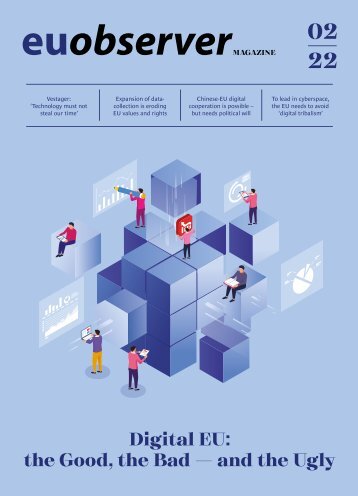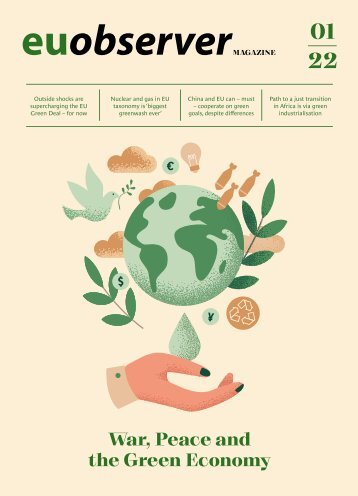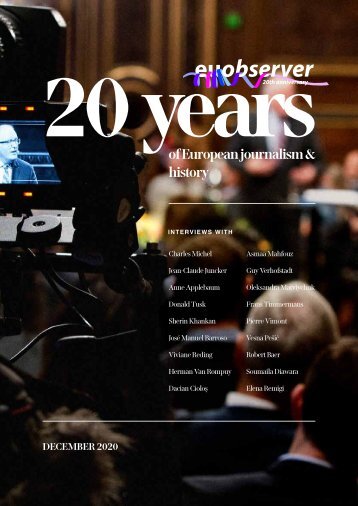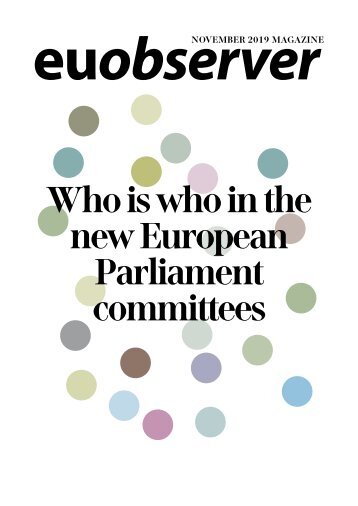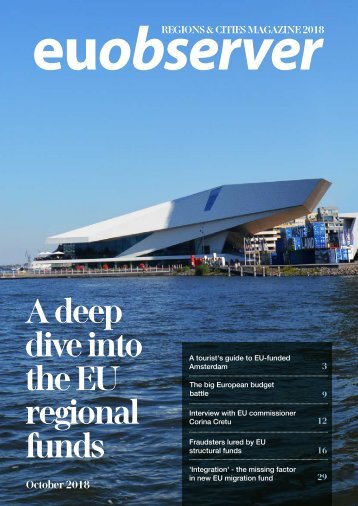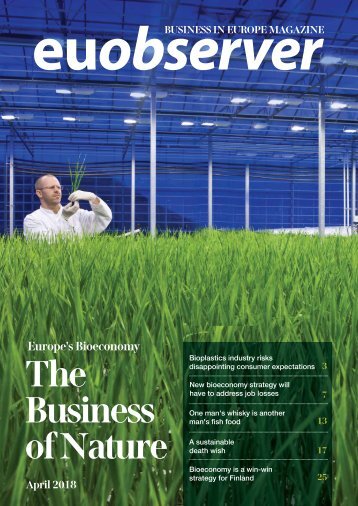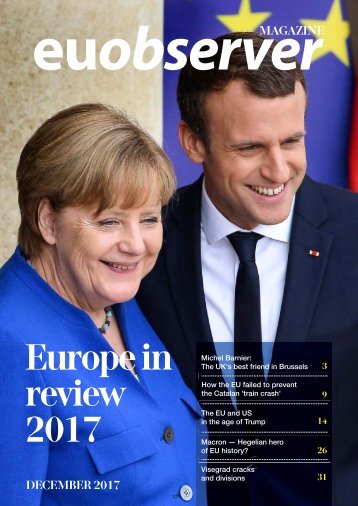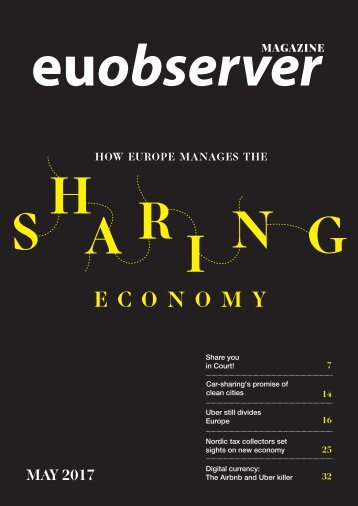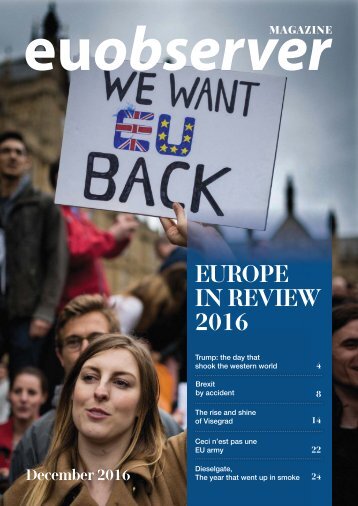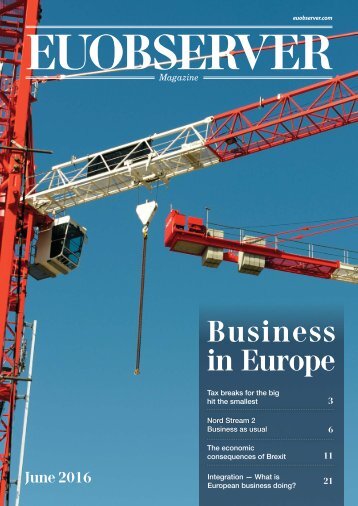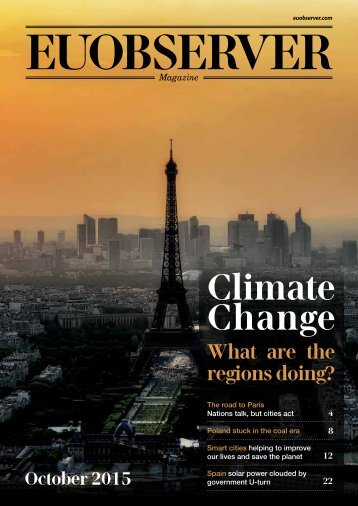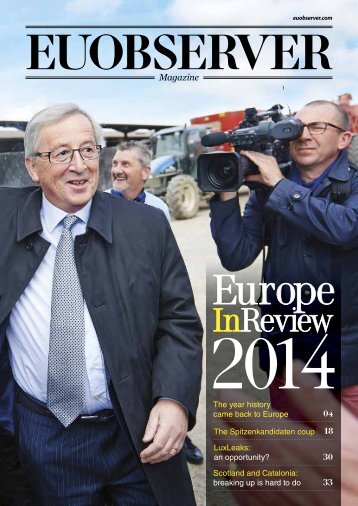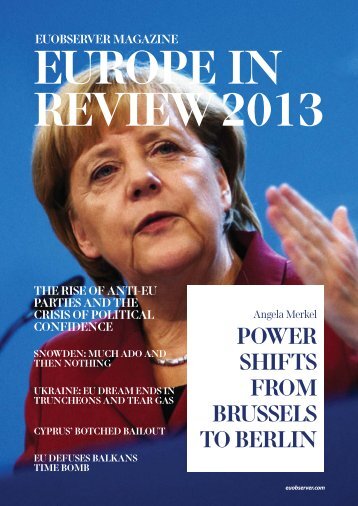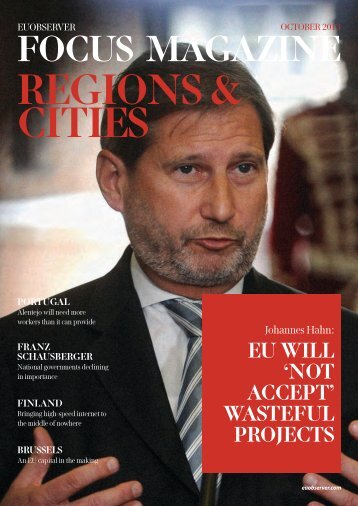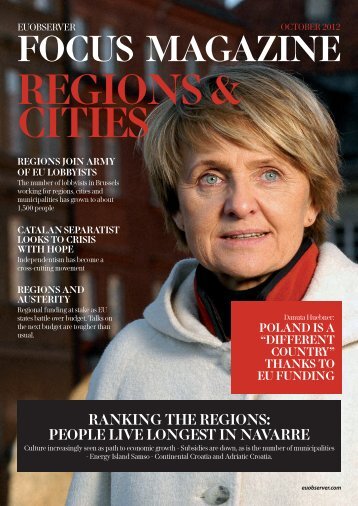European Parliament Elections 2019
- Text
- European
- Parliament
- Elections
- Meps
- Parliamant
- Brussels
- Strasbourg
- Russia
- Plenary
- Euobserver
STAKEHOLDER
STAKEHOLDER European Joint Undertaking ‘Fusion for Energy’ European industry is reaping the benefits of the EU leadership in the ITER project, the next major step in our quest for the energy for the future The ITER construction site, October 2018 Energy is essential for economic development, growth and social wellbeing. It is a vital commodity for our everyday lives and a driver for progress and prosperity. As the world’s energy needs increase, fossil fuels – responsible for environmental pollution and climate change – still represent around 80% of the global energy mix. We need to find a way to continue to grow without putting our future at risk. Fusion can play a role in the sustainable energy mix of the future. Fusion is the process that powers the sun and the stars - harnessing it on earth would have extraordinary potential rewards. The fuels required are widely available and virtually inexhaustible. Small amounts can generate plenty of energy: 60 kg of fusion fuel can release the same amount of energy as 250 000 tonnes of oil. Fusion does not emit any greenhouse gases and does not produce any long-lasting radioactive waste. Fusion reactors will be inherently safe and will be able to complement renewables, as they will be able to provide “baseload” electricity, supplying a steady supply when needed. Harnessing fusion is a major scientific and engineering endeavour requiring the development of complex fusion devices. The EU has been leading the world’s efforts in fusion research for decades. It is now hosting ITER (“the way”, in Latin), not only the most powerful fusion device ever but also the biggest international scientific collaboration in the area of energy. ITER is the next major milestone on the road to fusion energy. It will allow scientists to study a ‘burning plasma’ that releases more energy than used to produce it, and requires the development of an impressive range of cutting-edge technologies. ITER brings together the countries of the EU plus Switzerland, China, Japan, India, the Republic of Korea, Russia and the US, collectively representing 80% of the global GDP and half of the world’s population. ITER is an incredible technological and organisational puzzle, which will not only move us closer towards a new energy resource but also advance our scientific knowledge. The EU is not only hosting ITER in Southern France but is providing one-half of its components and all of the buildings. F4E is responsible for providing Europe’s contributions to ITER. F4E is working together with hundreds of Disclaimer: This article is sponsored by a third party. All opinions in this article reflect the views of the author and not of EUobserver.
STAKEHOLDER Follow F4E on Twitter @ fusionforenergy or visit us at: www.fusionforenergy.europa.eu develop new skills. ITER’s technological challenges promote the transfer of knowledge and expertise from research to industry and generate spin-offs beyond fusion. ITER offers companies an unprecedented opportunity to operate in an international context and to build long-lasting commercial partnerships. The ITER Vacuum Vessel is taking shape - October 2016 copyright: Walter Tosta Spa industries and research centres to design, develop and fabricate the complex elements making up the ITER device. This investment in ITER is producing significant benefits to the European economy. Independent studies have measured them to be 4.8 billion Euro and 34,000 job years from 2008 to 2017, resulting from F4E placing more than 900 contracts and grants of a total value of 4.5 billion Euro in 24 EU countries. ITER offers companies and research centres the opportunity to collaborate, grow and improve their competitiveness. The scale and complexity of the project invites companies to innovate, demonstrate their expertise and ITER has now reached 60% of completion to switching the machine on for the first time in December 2025. ITER is an essential step to bringing the “power of the sun to earth” and will provide a great leap forward in our scientific knowledge as well as in our quest for abundant, safe and sustainable energy for the future. At the same time, investment in fusion is generating growth and jobs, stimulating new business opportunities and fostering innovation. The inner-core of the Toroidal Field coil covered with resin pads, ASG Facility, La Spezia, Italy
- Page 1 and 2: EUROPEAN PARLIAMANT ELECTIONS 2019
- Page 3 and 4: European elections 23-26 may 2019 t
- Page 5 and 6: Currently, the largest political gr
- Page 7 and 8: The meeting of the bureau, chaired
- Page 9 and 10: Frans Timmermans fired up at the So
- Page 11 and 12: In February 2018 it adopted a text
- Page 13 and 14: THE CANDIDATES Manfred Weber, EPP (
- Page 15 and 16: The travelling CIRCUS Twelve times
- Page 17 and 18: The 'travelling circus' costs the E
- Page 19 and 20: As this magazine went to print, the
- Page 21 and 22: EU commissioner Miguel Arias Canete
- Page 23 and 24: German MEP Rainer Wieland (r) oppos
- Page 25 and 26: Russian leader Vladimir Putin with
- Page 27 and 28: that no one may be insulted or disc
- Page 29 and 30: He invited the World Congress of Fa
- Page 31 and 32: Europa' memes to provoke tension. B
- Page 33 and 34: Political science professor Ariadna
- Page 35 and 36: The gender gap at EU elections Prop
- Page 37: On average, fewer women vote in the
- Page 41 and 42: JULY - A new European Commission pr
- Page 43 and 44: EUobserver Making sense of the EU G
Inappropriate
Loading...
Mail this publication
Loading...
Embed
Loading...

